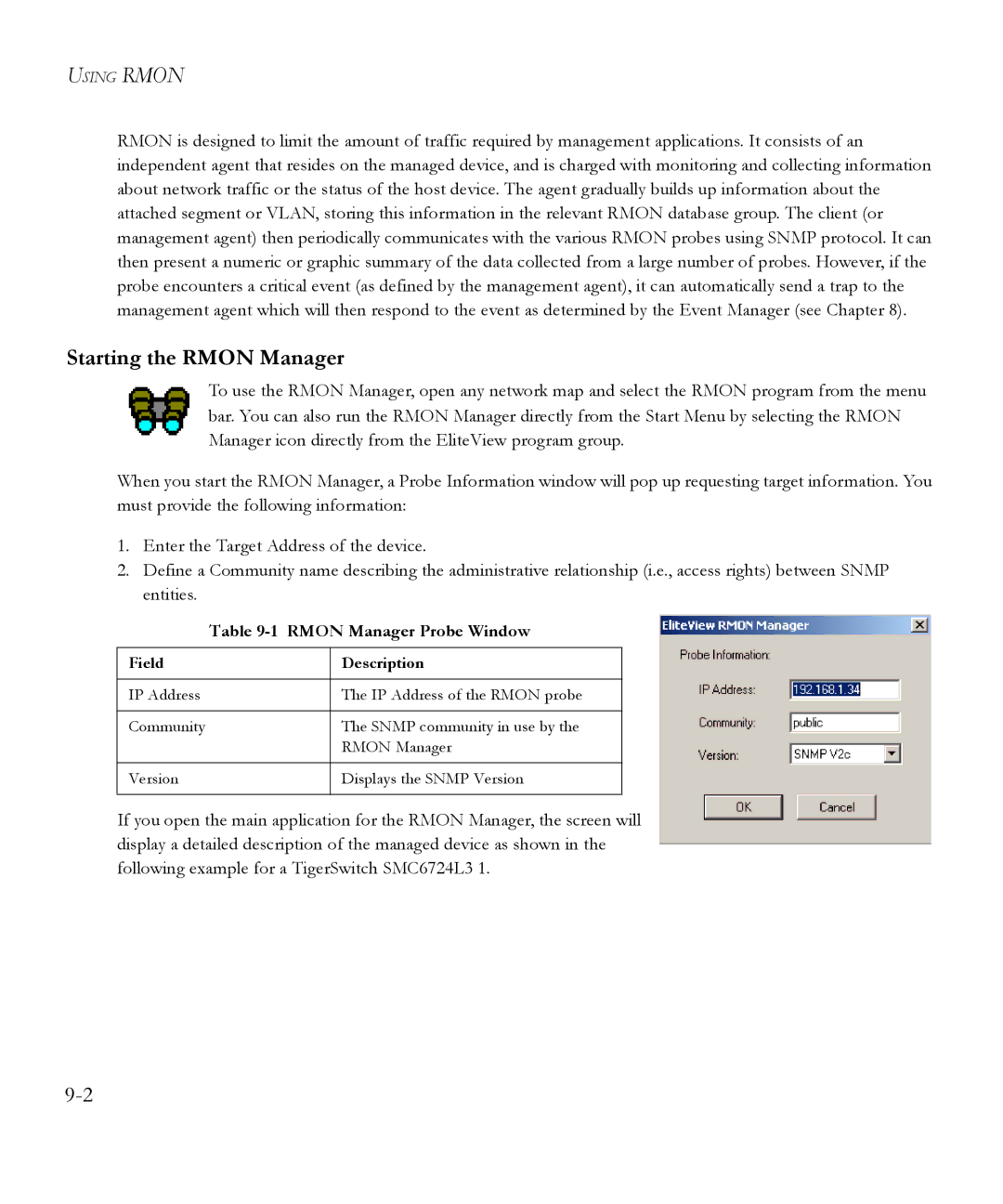
USING RMON
RMON is designed to limit the amount of traffic required by management applications. It consists of an independent agent that resides on the managed device, and is charged with monitoring and collecting information about network traffic or the status of the host device. The agent gradually builds up information about the attached segment or VLAN, storing this information in the relevant RMON database group. The client (or management agent) then periodically communicates with the various RMON probes using SNMP protocol. It can then present a numeric or graphic summary of the data collected from a large number of probes. However, if the probe encounters a critical event (as defined by the management agent), it can automatically send a trap to the management agent which will then respond to the event as determined by the Event Manager (see Chapter 8).
Starting the RMON Manager
To use the RMON Manager, open any network map and select the RMON program from the menu bar. You can also run the RMON Manager directly from the Start Menu by selecting the RMON Manager icon directly from the EliteView program group.
When you start the RMON Manager, a Probe Information window will pop up requesting target information. You must provide the following information:
1.Enter the Target Address of the device.
2.Define a Community name describing the administrative relationship (i.e., access rights) between SNMP entities.
| Table | |
|
|
|
Field |
| Description |
|
|
|
IP Address |
| The IP Address of the RMON probe |
|
|
|
Community |
| The SNMP community in use by the |
|
| RMON Manager |
|
|
|
Version |
| Displays the SNMP Version |
|
|
|
If you open the main application for the RMON Manager, the screen will display a detailed description of the managed device as shown in the following example for a TigerSwitch SMC6724L3 1.
